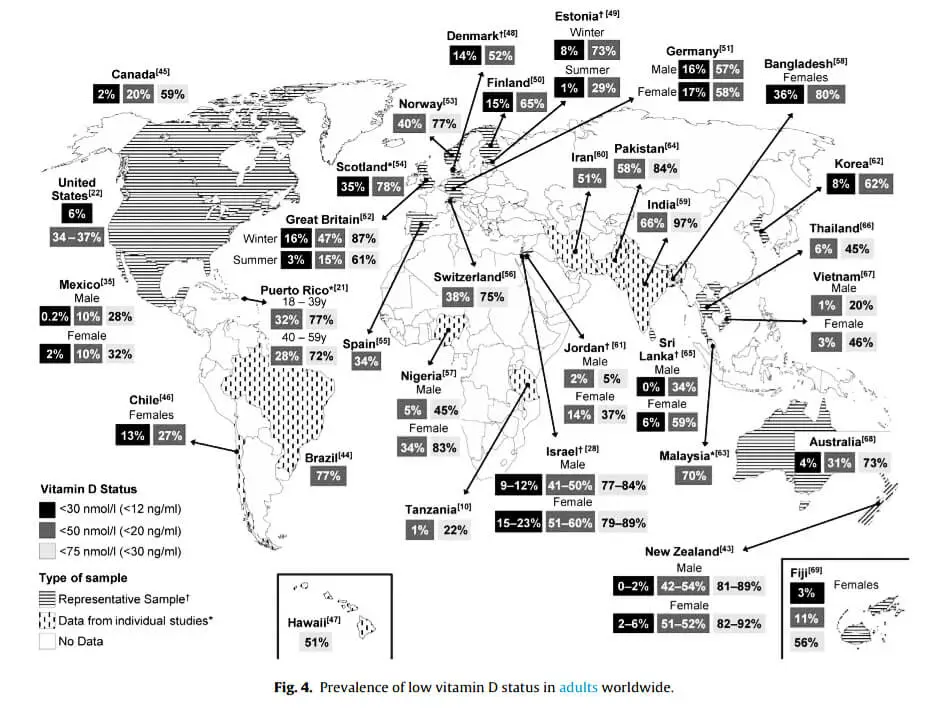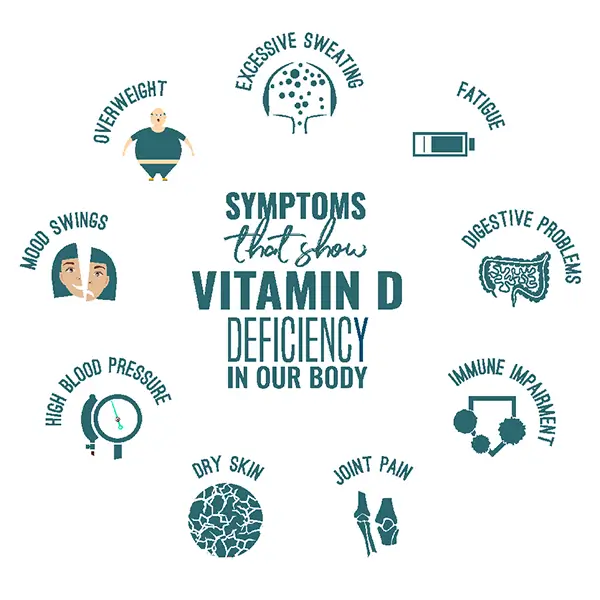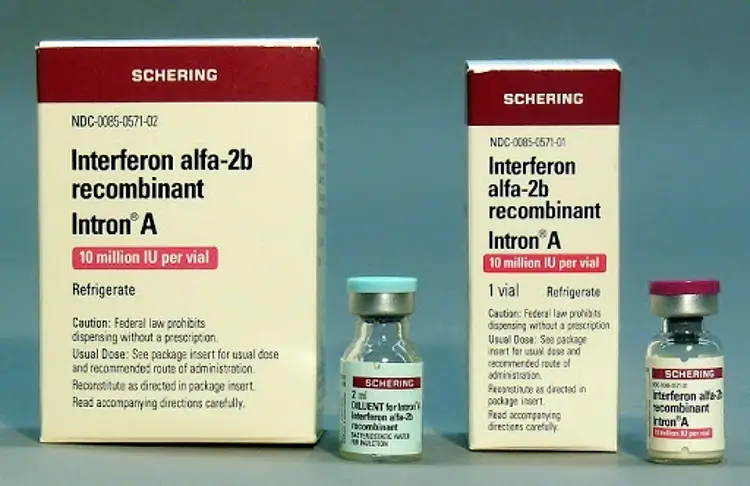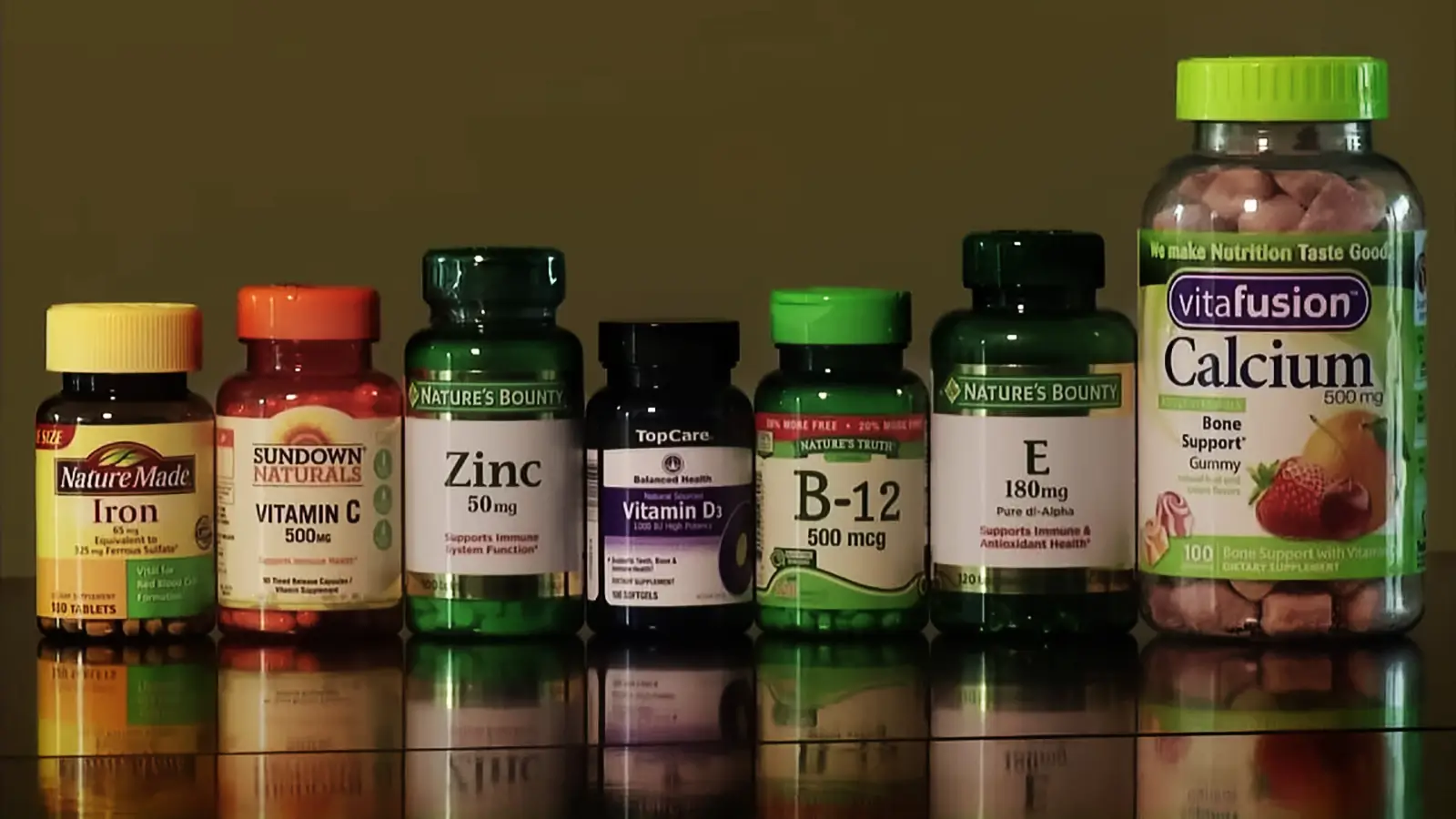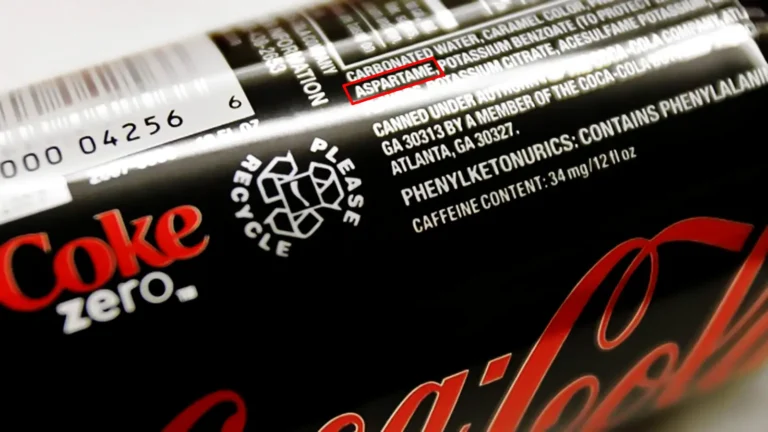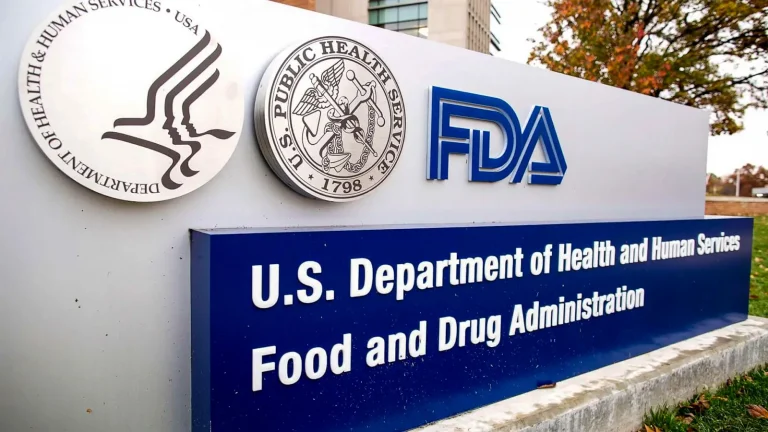Vitamin D deficiency- Risk Factors
There are only two vitamins that are not produced by plants, vitamin D, and the other would-be vitamin B12. Vitamin D deficiency is a real concern.
Milos Pokimica
Written By: Milos Pokimica
Medically Reviewed by: Dr. Xiùying Wáng, M.D.
Updated June 9, 2023There are only two vitamins that are not produced by plants. One is vitamin D that we produce ourselves during sunlight exposure and the other would-be vitamin B12. If you are a vegan it is only these two vitamins that you will have to supplement.
Vitamin D deficiency is one of the most common vitamin deficiencies in the world. In the US around 40% of the population is in the severe vitamin D deficiency category and more than 85% are in the insufficient level category (Pojsupap et al., 2015). Most likely if you do not have a severe deficiency you will still lack adequate and optimal levels of vitamin D for normal body functioning. What causes vitamin D deficiency is the modern way of life, it is a form of maladaptation to our current environment.
Even if you live in a sunny climate most likely you will have it. Despite substantial daily sunlight availability in Africa and the Middle East, people living in these regions are often vitamin D insufficient or deficient ranging from 5% to 80%. Vitamin D insufficiency is especially rampant among African Americans. Even young, healthy blacks do not achieve optimal concentrations at any time of the year. The darker the skin the less UV radiation it will absorb.
We have moved away from the sunny climate of Africa where we have been evolving for 60 million years and now, we are in the cold climate of the northern hemisphere with no sunlight and we live indoors and wear fabric to protect ourselves from cold. As a result, we don’t have adequate vitamin D levels most of the year and we need to supplement with it. Depending on your weight and sun exposure you should take from 4000 to 5000 I.U. You can take too much vitamin D, the upper tolerable level is 10,000 I.U. a day but taking more than 5000 will have little benefit to overall health and can lower vitamin A levels.
To analyze this question a little further the first thing we have to understand is that vitamin D is not really a vitamin. It is a prohormone, a steroid with a hormone-like activity that regulates about 3% of the human genome. More than 2,000 genes overall.
Calcium metabolism is just one of its many functions. For example, it is very important for our immune system regulation. Immune system regulation is very important because the immune system can attack the cells that it should not be attacking and at the same time, it could ignore other dangerous organisms that it should not be ignoring. Without adequate levels of vitamin D, our immune system can become “hyperactive” and will start to attack our own cells. That is a reason why vitamin D deficiency is connected to the development of seventeen different autoimmune diseases. Immune system functioning is also a big factor in the development of cancer and periodontal disease so vitamin D deficiency is also correlated to these diseases as well. It is not, however, correlated with cardiovascular disease and stroke.
So vitamin D deficiency is correlated with an increase in mortality rate and on top of that it is correlated with diseases that affect the quality of life like osteoporosis and asthma. Because in reality, it is a hormone, not a vitamin it is essential for large numbers of functions in the body. The reality is that even if we don’t have full-scale deficiency we might still be at a lower level than optimal and as result increase our risk of cancer, have a problem with the immune system, and on top of that have osteoporosis. Vitamin D deficiency can also affect mood in some people that are prone to depression. The question here is do we need to take it if we are deficient and if we don’t take it, are we going to increase our risk at a real and measurable level?
In this study for example (Mirzakhani et al., 2015) giving asthmatic children between 500 to 2,000 international units of vitamin D3 a day cuts asthma exacerbations by more than half. Because asthma is immune overstimulation vitamin D “calms” the immune system in a way. Asthma affects around 10% of children. One of the reasons asthma and allergies are on the rise is the rising rate of vitamin D deficiency (Raftery et al., 2015). Around 50% of asthma cases are caused by genetic factors, not environmental factors and the same story goes for allergies. In the clinical studies, most people that suffer from allergies and asthma benefited no matter if their disease was caused by genetic factors or not. In scientific terms:
” Vitamin D has shown the ability to inhibit both Th1- and Th2-type responses by suppressing both the production of IL-12-generated IFN-γ as well as IL-4 and IL-4-induced expression of IL-13. This ability could be of importance since the balance of Th1 and Th2 affects the pattern of the immune response. While asthma is thought to be a Th2 dominant condition and is largely characterized by the production of cytokines such as IL-4, IL-5, IL10 and IL-13, and the production of IgE by B cells…”
(Raftery et al., 2015)
Or in normal words, suppressing the production of immune system cytokines and IgE will stop the overstimulation of our immune system and will blunt its “hyperactive” response. Vitamin D basically tells our immune system to “chill out” and also at the same time does not affect normal immune system functioning. It is only a modulation in cases of overstimulation.
Vitamin D is not a cure but it is essential and beneficial supplemental therapy with no side effects except for the overall positive effects on the body. In normal environmental conditions, this supplemental therapy would not be necessary.
If we look at most of the other immune system diseases and the role of vitamin D it would be the same story. For example, vitamin D deficiency is common among patients with Inflammatory Bowel Disease (Fletcher et al., 2019).
“Emerging evidence suggests that vitamin D may have roles in innate and adaptive immunity, in the immune-pathogenesis of Crohn’s disease, prevention of Crohn’s disease-related hospitalizations and surgery, in reducing disease severity and in colon cancer prevention.”
(Fletcher et al., 2019)
Crohn’s disease and ulcerative colitis are chronic inflammatory conditions of the intestine where the immune system attacks its own cells causing severe inflammation. Unlike in allergies immune system in this case will attack its own cells by mistake believing that these cells are infectious and unlike allergies, it would not be “just” inflammation or hyper response but real and permanent damage to our own DNA. Why this happens is a complicated science and in most cases is not genetic but some type of malfunction of the immune system. There are cases of identical twins where one has Chron’s and the other does not. There is a correlation between vitamin D levels and Chron’s disease (Jørgensen et al., 2010). Countries with more sunlight get fewer Chron’s, northern parts of the USA have more cases than southern states, and also clinically when we measure the level of vitamin D in people with the disease it would be the same correlation. But what if you already have it? In this study for example oral supplementation with 1200 IE vitamin D3 significantly increased serum vitamin D levels and significantly reduced the risk of relapse from 29% to 13% (Aranow, 2011). They concluded that:
“Vitamin D has immune-regulatory functions in experimental colitis, and low vitamin D levels are present in Crohn’s disease.”
(Aranow, 2011)
To get the benefits of Inflammatory Bowel Disease you will need at least 5.000 IU of vitamin D a day and this is much more than RDA because this will be the level that will be required to get to the normal levels in the bloodstream in an evolutional sense.
What about normal immune system functioning? Will vitamin D deficiency cause immune suppression and increase the risk of influenza?
“It is now clear that vitamin D has important roles in addition to its classic effects on calcium and bone homeostasis. As the vitamin D receptor is expressed on immune cells (B cells, T cells, and antigen-presenting cells) and these immunologic cells are all are capable of synthesizing the active vitamin D metabolite… Vitamin D can modulate innate and adaptive immune responses. Deficiency in vitamin D is associated with increased autoimmunity as well as increased susceptibility to infection.”
(Gal-Tanamy et al., 2011)
Today it is well accepted in the scientific community and there is a substantial amount of research on the subject that chronic vitamin D deficiency will create more susceptible conditions to the wide range of different types of infections on top of the fact that vitamin D helps in the downregulation of overstimulated immune responses.
Deficiency in vitamin D is therefore associated with both increased autoimmunity as well as increased susceptibility to infection. It is an important vitamin for overall immune functioning and disease prevention, especially in elderly people and children that are already more susceptible to infection. In times of Coronavirus, this knowledge might be of some benefit. In this study for example (Garland et al., 2006) vitamin D supplementation improved biological response when combined with antiviral treatment against the hepatitis C virus.
D3 and interferon‐α synergistically inhibited viral production. Interferon is a natural immune system modulator that our body produces when dealing with infections and it is a standard treatment in most viral treatments including influenza viruses like COVID-19. Conclusion:
“This study demonstrates for the first time a direct antiviral effect of vitamin D in an in vitro infectious virus production system. It proposes an interplay between the hepatic vitamin D endocrine system and HCV, suggesting that vitamin D has a role as a natural antiviral mediator. Importantly, our study implies that vitamin D might have an interferon‐sparing effect, thus improving the antiviral treatment of HCV‐infected patients.”
(Garland et al., 2006)
Unlike interferon, vitamin D3 has no side effects and it is very cheap. Most people with the immune disease will be prescribed interferon in some type for example patients with multiple sclerosis usually will be administered interferon beta to reduce inflammation. Interferon injections are very expensive so they will not be administered on a population-wide scale to lower COVID-19 mortality, but there is a cheap natural alternative in green tea (Juszkiewicz et al., 2019), (Li et al., 2016), (Turner et al., 2014). Immunologists at Harvard University discovered that drinking green tea will dramatically stimulate, in some cases more than 10-fold the increase in our body’s natural interferon production. It is because the amino acid only found in green the called L-Theanine. L-Theanine is broken down in the liver to create ethylamine, a molecule that initiates the response of gamma-delta T cells. The T cells in the blood prompt the release of interferon. In the Corona outbreak, this knowledge might be of some benefit to you as a prevention strategy (Turner et al., 2014). You will need around 30 grams of dried green tea a day to stimulate interferon endogenously. This will be discussed in a separate article. Interferon is a secret Cuba’s ‘wonder drug’ being pitched against coronavirus. It is just an interferon. Interferon Alfa-2B is produced in China, by the Cuban-Chinese joint venture ChangHeber.
Considering vitamin D, the same as in any other immune system disease, it regulates almost all autoimmune diseases. Studies have shown for example that people who have higher levels of vitamin D3 have a lower risk of MS. Therefore, vitamin D supplementation is considered an important modifiable environmental risk factor for the development of multiple sclerosis. Also, studies suggest that for people who already have MS, vitamin D may offer some benefits.
There is a link between cancer and vitamin D as well. Because cancer cells are destroyed by the immune system every single day, malfunctioning of the immune system due to chronic D3 deficiency can result in the accumulation of cancer cells and eventually in the development of cancer. A deficiency of vitamin D might not be the sole reason why someone gets cancer but it will increase the risk of cancer development in individuals that already have a risk (Wang et al., 2014). It can also affect the rate of cancer survival. In one study vitamin D increased the rate of colorectal cancer survival by as much as 47% (Reid et al., 2011). Will this be an effective treatment for all types of cancer I don’t know. Probably knot but it is cheap, health-promoting, side effect free therapy. Actually, it is not a therapy but a form of nutritional intervention in the sense that has an effect on the immune system. Even statistical data shows that there is a significant difference between the colon cancer death rate in different seasons depending on sunlight exposure. It is strongly correlated with some types of cancers like colon, breast, ovarian, and lymphoma, overall 14 different types of cancer are associated with lower vitamin D levels.
Also, any type of injury like surgery, for example, will drop vitamin D levels dramatically sometimes even within a couple of hours (Reid et al., 2011). Why this happens probably because of the influence that vitamin d has on inflammation. Or if we reverse the logic, if inflammation and injury decrease vitamin D levels then low vitamin D levels can cause an increase in inflammation within the body. Then inflammation independently can cause immune system suppression and cancer risk increase and is associated with a wide range of chronic diseases just by itself. If a link between vitamin D deficiency and inflammation is proven to be correct then it would be a serious and independent factor that will have to be taken into account when thinking about risk factors associated with deficiency.
Vitamin D is relatively cheap the only question really is how much should we take, in what form, and do we need to take it for an entire year if we have adequate sunlight exposure during the summer?
References:
- Pojsupap, S., Iliriani, K., Sampaio, T. Z., O’Hearn, K., Kovesi, T., Menon, K., & McNally, J. D. (2015). Efficacy of high-dose vitamin D in pediatric asthma: a systematic review and meta-analysis. The Journal of asthma : official journal of the Association for the Care of Asthma, 52(4), 382–390. https://doi.org/10.3109/02770903.2014.980509
- Mirzakhani, H., Al-Garawi, A., Weiss, S. T., & Litonjua, A. A. (2015). Vitamin D and the development of allergic disease: how important is it?. Clinical and experimental allergy : journal of the British Society for Allergy and Clinical Immunology, 45(1), 114–125. https://doi.org/10.1111/cea.12430
- Raftery, T., & O’Sullivan, M. (2015). Optimal vitamin D levels in Crohn’s disease: a review. The Proceedings of the Nutrition Society, 74(1), 56–66. https://doi.org/10.1017/S0029665114001591
- Fletcher, J., Cooper, S. C., Ghosh, S., & Hewison, M. (2019). The Role of Vitamin D in Inflammatory Bowel Disease: Mechanism to Management. Nutrients, 11(5), 1019. https://doi.org/10.3390/nu11051019
- Jørgensen, S. P., Agnholt, J., Glerup, H., Lyhne, S., Villadsen, G. E., Hvas, C. L., Bartels, L. E., Kelsen, J., Christensen, L. A., & Dahlerup, J. F. (2010). Clinical trial: vitamin D3 treatment in Crohn’s disease – a randomized double-blind placebo-controlled study. Alimentary pharmacology & therapeutics, 32(3), 377–383. https://doi.org/10.1111/j.1365-2036.2010.04355.x
- Aranow C. (2011). Vitamin D and the immune system. Journal of investigative medicine : the official publication of the American Federation for Clinical Research, 59(6), 881–886. https://doi.org/10.2310/JIM.0b013e31821b8755
- Gal-Tanamy, M., Bachmetov, L., Ravid, A., Koren, R., Erman, A., Tur-Kaspa, R., & Zemel, R. (2011). Vitamin D: an innate antiviral agent suppressing hepatitis C virus in human hepatocytes. Hepatology (Baltimore, Md.), 54(5), 1570–1579. https://doi.org/10.1002/hep.24575
- Garland, C. F., Garland, F. C., Gorham, E. D., Lipkin, M., Newmark, H., Mohr, S. B., & Holick, M. F. (2006). The role of vitamin D in cancer prevention. American journal of public health, 96(2), 252–261. https://doi.org/10.2105/AJPH.2004.045260
- Wang, B., Jing, Z., Li, C., Xu, S., & Wang, Y. (2014). Blood 25-hydroxyvitamin D levels and overall mortality in patients with colorectal cancer: a dose-response meta-analysis. European journal of cancer (Oxford, England : 1990), 50(12), 2173–2175. https://doi.org/10.1016/j.ejca.2014.05.004
- Reid, D., Toole, B. J., Knox, S., Talwar, D., Harten, J., O’Reilly, D. S., Blackwell, S., Kinsella, J., McMillan, D. C., & Wallace, A. M. (2011). The relation between acute changes in the systemic inflammatory response and plasma 25-hydroxyvitamin D concentrations after elective knee arthroplasty. The American journal of clinical nutrition, 93(5), 1006–1011. https://doi.org/10.3945/ajcn.110.008490
- Rahayu, R. P., Prasetyo, R. A., Purwanto, D. A., Kresnoadi, U., Iskandar, R. P. D., & Rubianto, M. (2018). The immunomodulatory effect of green tea (Camellia sinensis) leaves extract on immunocompromised Wistar rats infected by Candida albicans. Veterinary world, 11(6), 765–770. https://doi.org/10.14202/vetworld.2018.765-770
- Juszkiewicz, A., Glapa, A., Basta, P., Petriczko, E., Żołnowski, K., Machaliński, B., Trzeciak, J., Łuczkowska, K., & Skarpańska-Stejnborn, A. (2019). The effect of L-theanine supplementation on the immune system of athletes exposed to strenuous physical exercise. Journal of the International Society of Sports Nutrition, 16(1), 7. https://doi.org/10.1186/s12970-019-0274-y
- Li, C., Tong, H., Yan, Q., Tang, S., Han, X., Xiao, W., & Tan, Z. (2016). L-Theanine Improves Immunity by Altering TH2/TH1 Cytokine Balance, Brain Neurotransmitters, and Expression of Phospholipase C in Rat Hearts. Medical science monitor : international medical journal of experimental and clinical research, 22, 662–669. https://doi.org/10.12659/msm.897077
- Turner, R. B., Felton, A., Kosak, K., Kelsey, D. K., & Meschievitz, C. K. (1986). Prevention of experimental coronavirus colds with intranasal alpha-2b interferon. The Journal of infectious diseases, 154(3), 443–447. https://doi.org/10.1093/infdis/154.3.443
- Palacios, C., & Gonzalez, L. (2014). Is vitamin D deficiency a major global public health problem?. The Journal of steroid biochemistry and molecular biology, 144 Pt A, 138–145. https://doi.org/10.1016/j.jsbmb.2013.11.003
Related Posts
Do you have any questions about nutrition and health?
I would love to hear from you and answer them in my next post. I appreciate your input and opinion and I look forward to hearing from you soon. I also invite you to follow us on Facebook, Instagram, and Pinterest for more diet, nutrition, and health content. You can leave a comment there and connect with other health enthusiasts, share your tips and experiences, and get support and encouragement from our team and community.
I hope that this post was informative and enjoyable for you and that you are prepared to apply the insights you learned. If you found this post helpful, please share it with your friends and family who might also benefit from it. You never know who might need some guidance and support on their health journey.
– You Might Also Like –

Learn About Nutrition
Milos Pokimica is a doctor of natural medicine, clinical nutritionist, medical health and nutrition writer, and nutritional science advisor. Author of the book series Go Vegan? Review of Science, he also operates the natural health website GoVeganWay.com
Medical Disclaimer
GoVeganWay.com brings you reviews of the latest nutrition and health-related research. The information provided represents the personal opinion of the author and is not intended nor implied to be a substitute for professional medical advice, diagnosis, or treatment. The information provided is for informational purposes only and is not intended to serve as a substitute for the consultation, diagnosis, and/or medical treatment of a qualified physician or healthcare provider.NEVER DISREGARD PROFESSIONAL MEDICAL ADVICE OR DELAY SEEKING MEDICAL TREATMENT BECAUSE OF SOMETHING YOU HAVE READ ON OR ACCESSED THROUGH GoVeganWay.com
NEVER APPLY ANY LIFESTYLE CHANGES OR ANY CHANGES AT ALL AS A CONSEQUENCE OF SOMETHING YOU HAVE READ IN GoVeganWay.com BEFORE CONSULTING LICENCED MEDICAL PRACTITIONER.
In the event of a medical emergency, call a doctor or 911 immediately. GoVeganWay.com does not recommend or endorse any specific groups, organizations, tests, physicians, products, procedures, opinions, or other information that may be mentioned inside.
Editor Picks –
Milos Pokimica is a doctor of natural medicine, clinical nutritionist, medical health and nutrition writer, and nutritional science advisor. Author of the book series Go Vegan? Review of Science, he also operates the natural health website GoVeganWay.com
Latest Articles –
Plant Based News
-
Where Do Vegans Get Their Protein? The Ultimate 2025 Response
on June 29, 2025
-
Saffron Green Bean Rice
on June 29, 2025
-
Tomato Choka Salad With Chickpea Tofu
on June 29, 2025
-
How To Make This ‘Always A Winner’ Vegan Sandwich
on June 29, 2025
-
5-Ingredient Coconut And Squash Traybake
on June 29, 2025
-
Lidl Launches Round BN-Style Vegan Biscuits
on June 28, 2025
-
Vegan Mushroom Calzone
on June 28, 2025
Top Health News — ScienceDaily
- A tiny implant just helped paralyzed rats walk again—is human recovery next?on June 28, 2025
A groundbreaking study from the University of Auckland and Chalmers University of Technology is offering new hope for spinal cord injury patients. Researchers have developed an ultra-thin implant that delivers gentle electric currents directly to the injured spinal cord. This device mimics natural developmental signals to stimulate nerve healing, and in animal trials, it restored movement and touch sensation in rats—without causing inflammation or damage.
- Scientists turn beer yeast into mini factories for smart drugson June 28, 2025
A team of researchers has turned ordinary yeast into tiny, glowing drug factories, creating and testing billions of peptide-based compounds in record time. This green-tech breakthrough could fast-track safer, more precise medicines and reshape the future of pharma.
- Candy colors, THC inside: How cannabis edibles are tricking teen brainson June 28, 2025
Teens are being misled by cannabis edibles dressed up like health foods. Bright colors, fruit imagery, and words like vegan make these products look fun, natural, and safe even when they re not. A WSU study warns that this could increase the risk of underage use and urges new packaging rules based on what actually appeals to teens.
- Why asthma often comes back—even with powerful drugson June 27, 2025
Biological drugs have been a game-changer for people with severe asthma, helping them breathe easier and live more comfortably. But researchers at Karolinska Institutet have uncovered a surprising twist: while these treatments ease symptoms, they may not fully eliminate the immune cells that drive inflammation. In fact, some of these cells actually increase during treatment, suggesting the medication is managing symptoms without targeting the root cause. This could explain why asthma often […]
- Parkinson’s may begin decades earlier — and your immune system might know firston June 27, 2025
Misbehaving T cells light up long before Parkinson’s symptoms show, zeroing in on vulnerable brain proteins. Their early surge could double as an alarm bell and a target for stop-it-early treatments.
- AI sees what doctors miss: Fatty liver disease hidden in chest x-rayson June 27, 2025
Researchers in Japan created an AI that can detect fatty liver disease from ordinary chest X-rays—an unexpected and low-cost method that could transform early diagnosis. The model proved highly accurate and may offer a fast, affordable way to flag this silent but serious condition.
- Acid-busting diet triggers 13-pound weight loss in just 16 weekson June 26, 2025
Swap steaks for spinach and you might watch the scale plummet. In a 16-week crossover study, overweight adults who ditched animal products for a low-fat vegan menu saw their bodies become less acidic and dropped an average of 13 pounds—while the Mediterranean diet left weight unchanged. Researchers link the shift to lower “dietary acid load,” a hidden inflammation trigger driven by meat, eggs, and cheese.
PubMed, #vegan-diet –
- Micronutrient intake and nutritional status in 16-to-24-year-olds adhering to vegan, lacto-ovo-vegetarian, pescatarian or omnivorous diets in Swedenon June 26, 2025
CONCLUSION: Youth, regardless of dietary practice, need support to ensure adequate micronutrient intakes, particularly for vitamin D and selenium. Further research is required to evaluate iodine nutrition in Swedish youth.
- Dietary Patterns and Sustainable Lifestyles: A Multicenter Study from Latin America and Spainon June 26, 2025
Food systems interact through multiple dimensions including food security, nutrition, and planetary health. This study aims to associate different dietary patterns with sustainable lifestyles in Latin America and Spain. This was an observational, analytical, multicenter, cross-sectional survey study, with a total of 6412 participants. A self-administered questionnaire was developed in an online format in the Google Docs interface. The questionnaire was divided into sections: (1) […]
- Integrating comparative genomics and risk classification by assessing virulence, antimicrobial resistance, and plasmid spread in microbial communities with gSpreadCompon June 26, 2025
CONCLUSIONS: The gSpreadComp workflow aims to facilitate hypothesis generation for targeted experimental validations by the identification of concerning resistant hotspots in complex microbial datasets. Our study raises attention to a more thorough study of the critical role of diet in microbial community dynamics and the spread of AMR. This research underscores the importance of integrating genomic data into public health strategies to combat AMR. The gSpreadComp workflow is available at…
- Validation and adaptation of a Turkish version of the dietarian identity questionnaireon June 25, 2025
Dietarian identity reflects an individual’s cognitive, emotional, and behavioral orientation toward the consumption or avoidance of animal-based foods, including red meat, poultry, fish, eggs, and dairy. This study aimed to adapt and validate the Dietarian Identity Questionnaire (DIQ) for Turkish-speaking populations by establishing its cultural and linguistic suitability and examining dietarian identity profiles among different dietary patterns. The DIQ was adapted into Turkish and […]
- Planting Rights and Feeding Freedom: Navigating the Right to a Vegan Diet in Hospitals and Prisonson June 20, 2025
The legal recognition of veganism highlights the evolving landscape of dietary choices and their status under human rights law. This paper examines the legal status of vegan diets under the European Convention on Human Rights (ECHR), focusing on public institutions such as prisons and hospitals. By analyzing the first relevant cases before the European Court of Human Rights, it explores the protection of vegan diets under Articles 9 (freedom of thought, conscience, and religion) and 14…
Random Posts –
Featured Posts –

Latest from PubMed, #plant-based diet –
- Adherence to Mediterranean Diet and Implications for Cardiovascular Risk Preventionby Giulia Frank on June 27, 2025
Background/Objectives:Arterial hypertension, increased carotid intima-media thickness (cIMT), and arterial stiffness (AS) are recognized predictors of cardiovascular disease (CVD). Emerging evidence suggests that vascular remodeling may precede the full development of hypertension. Furthermore, body mass index (BMI), fat mass percentage (FM%), and visceral adipose tissue (VAT), are significant risk factors for cardiovascular events. Conversely, adherence to the Mediterranean diet is […]
- Fermented Fruits, Vegetables, and Legumes in Metabolic Syndrome: From Traditional Use to Functional Foods and Medical Applicationsby Karolina Bernacka on June 27, 2025
Fermentation has been used for centuries to preserve food and to obtain products with new, attractive sensory characteristics. Fermented products are a source of dietary fiber, vitamins, bioactive compounds, and probiotic bacteria with health-promoting properties. This review provides a comprehensive overview of the effects of fermented fruits, vegetables, and legumes on metabolic disturbances characterizing metabolic syndrome (MetS). Furthermore, the chemical composition, microbial […]
- Dos and Don’ts in Kidney Nutrition: Practical Considerations of a Panel of Experts on Protein Restriction and Plant-Based Diets for Patients Living with Chronic Kidney Diseaseby Massimo Torreggiani on June 27, 2025
Dietary management is a pillar of chronic kidney disease (CKD) treatment. While some rules are the same as dietary prescriptions for the general population and those suffering from other chronic diseases (energy intake, salt intake, avoidance of ultra-processed food and limited intake of animal fats), in non-dialysis-dependent patients living with CKD, the specific focus is on protein intake. Low-protein diets (LPDs) and supplemented very low protein diets (sVLPDs) have been successfully…
- Effects of Pork Protein Ingestion Prior to and Following Performing the Army Combat Fitness Test on Markers of Catabolism, Inflammation, and Recoveryby Drew E Gonzalez on June 27, 2025
Tactical athletes and military personnel engaged in intense exercise need to consume enough quality protein in their diet to maintain protein balance and promote recovery. Plant-based protein sources contain fewer essential amino acids (EAAs), while pork loin contains a higher concentration of EAAs and creatine than most other animal protein sources. This study aimed to determine whether the ingestion of plant-based or pork-based military-style meals ready-to-eat (MREs) affects recovery from […]
- Mediterranean Diet, Obesity-Related Metabolic Cardiovascular Disorders, and Environmental Sustainability: A Systematic Reviewby Sergio Rodríguez Núñez on June 27, 2025
INTRODUCTION: This article aims to provide an updated overview of the scientific knowledge regarding the interplay between the Mediterranean diet (MedD), sustainability, and cardiovascular and metabolic health.
- Employing Nutrition to Delay Aging: A Plant-Based Telomere-Friendly Dietary Revolutionby Joanna Polom on June 27, 2025
Telomere attrition is a hallmark of cellular aging, influenced by oxidative stress, chronic inflammation, and metabolic dysregulation. Emerging evidence suggests that dietary patterns rich in plant-based, minimally processed foods may influence telomere dynamics, potentially extending healthspan. This narrative review synthesizes current literature on the molecular mechanisms by which specific nutrients-such as antioxidants, polyphenols, omega-3 fatty acids, and methyl donors-affect telomere…
